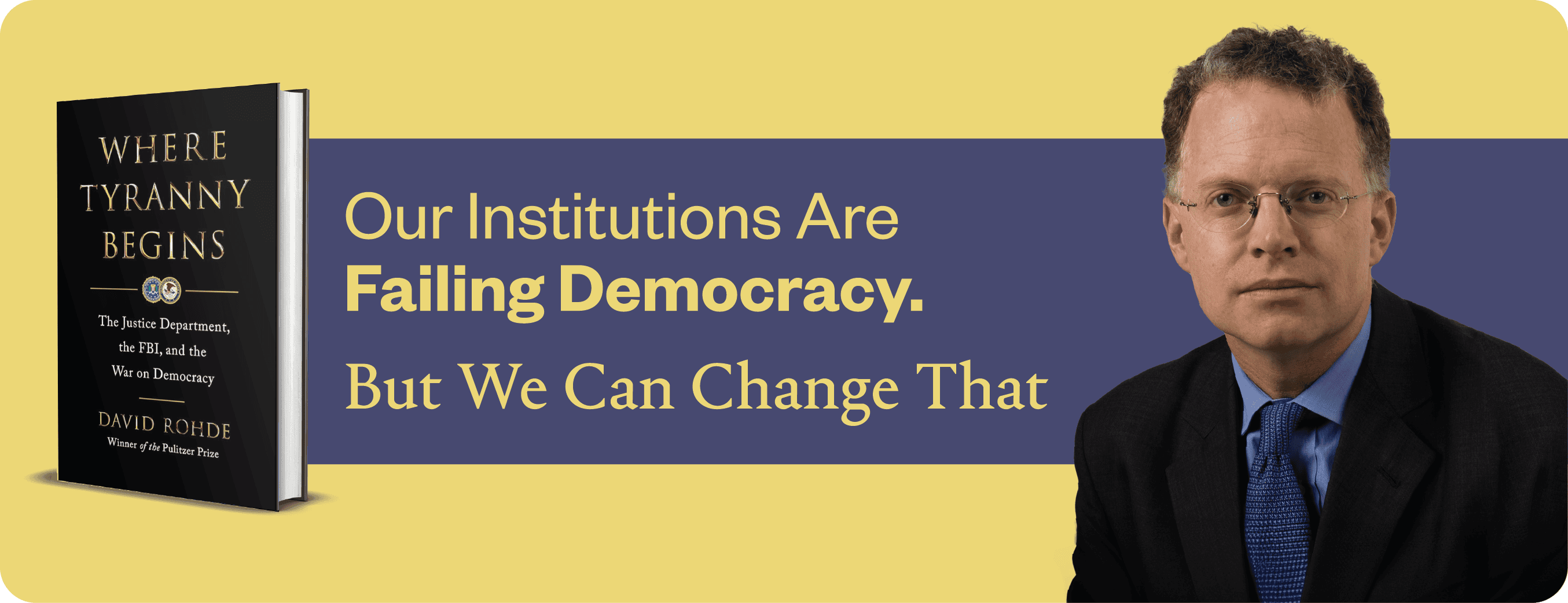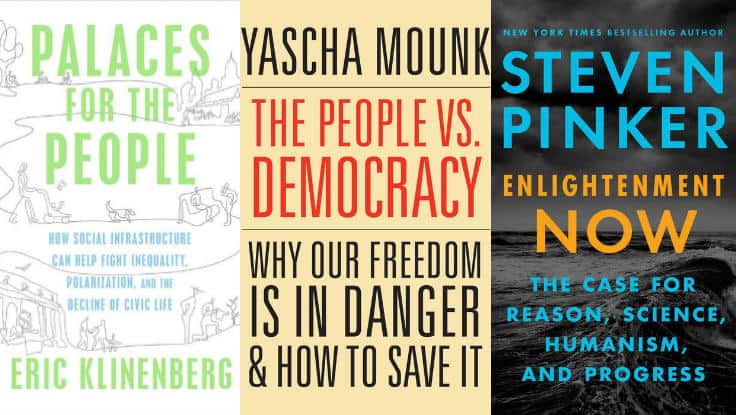Our institutions, from the FBI to the Justice Department and beyond, have been intentionally weakened over the past few years. But we can fix them, says David Rohde—and gain not only a more unified political landscape, but a stronger democracy.
“There’s definitely corruption, but there are a lot of people who are trying to do the right things,” David tells NPR’s Terry Gross in a much-shared interview on Fresh Air this week. “People running for office, people coming out as volunteers—that’s democracy.”
David is “one of the best investigative reporters of his generation” (George Packer, The Unwinding). A celebrated political and international correspondent, he was captured by the Taliban while reporting in Afghanistan—and escaped. He’s won two Pulitzer Prizes, served as The New Yorker‘s online news director, and is now NBC’s senior executive editor for national security.
David’s new book, Where Tyranny Begins, is a revealing investigation into how the Justice Department and FBI have failed to hold flawed governments accountable. The New York Times named it as one of 19 nonfiction books to read this summer. It’s a vital addition to his body of work on how institutions affect our everyday lives, which includes his previous book In Deep (on the conspiracy theories surrounding a “Deep State”).
In insightful, accessible talks, David speaks with clarity and optimism on how ordinary citizens like us can still fight for our rights, greater resilience for our institutions, and the success of our democracy.

